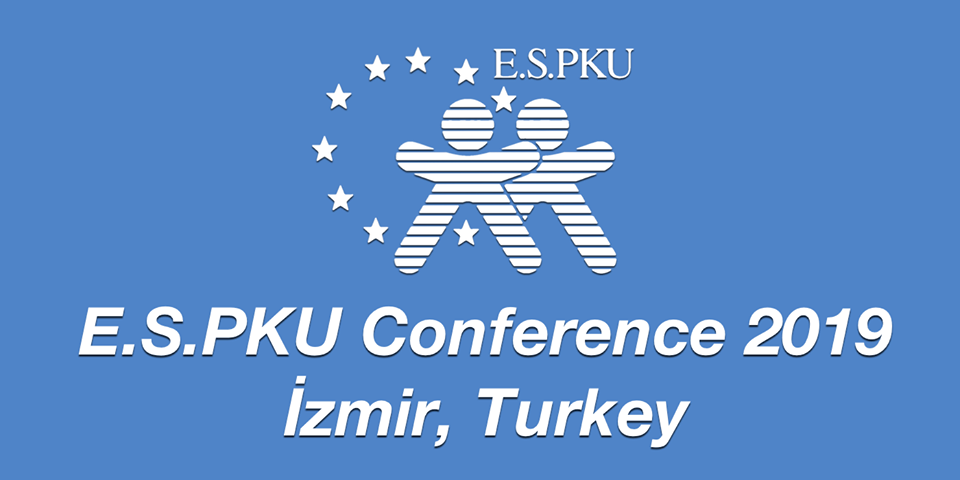Dear ESPKU Member Organisations I hope you are all well, and , on behalf of the ESPKU Board , thank you all, for your tremendous support for Ukrainian PKU patients. The ESPKU has embarked on a project to assess the differences between care recommended in the European Guidelines on the treatment for PKU- and the reality in care delivered in European Countries. We wish to identify gaps between the two if they exist. The findings will be analysed, peer reviewed and published in a reputable scientific publication. We have developed a questionnaire for all PKU patients/carers to complete. The more responses …
Spring Meeting & Conference 2020
As you are aware there is a global outbreak of the coronavirus. As a responsible organization we are alway monitoring the situation and basing our decisions on this. As the situation is very unstable at the moment we need to inform our delegates that the spring meeting 2020 will not be held in Madrid. We will continue to have our spring meeting for our delegates as an online meeting. More information is available on the workplace for delegates. Please rest assured that we are also closely monitoring the situation for our annual conference this fall. As of right now we …
E.S.PKU Conference 2019
We are happy to host our conference in Izmir, Turkey for this year. Turkey hosts one of the biggest PKU communities and we have been keen to come back to Turkey for the last couple of years. Learn more about what to expect from our annual conference this year! There are still a couple of days left to book your ticket for the annual E.S.PKU conference. We also have already published the full conference program. This makes it easier for you to see what interesting topics will be presented this year besides meeting all those people from around the globe. …
Addressing the high burden and significant unmet needs in Phenylketonuria (PKU)
Read this executive summary and download the full report. This Policy Roundtable, organised by the European Society for Phenylketonuria and Allied Disorders Treated as Phenylketonuria (ESPKU), was hosted by MEPs Deirdre Clune (Ireland, EPP) and Nessa Childers (Ireland, S&D). Objectives to have an informed discussion on phenylketonuria (PKU) and its impact; to support understanding of the true nature of the condition; to identify the unmet needs in the area of PKU; to gather expert opinions on what can still be done to advance the interests of people living with PKU; to generate political momentum. Potential areas of action, arising from …
Social media discussion about MipSalus
Recently, a publication on genefo.com about a new treatment in development for Phenylketonuria by Danish biotech company MipSalus, raised considerable discussion on social media. It was suggested that this treatment has already been approved in Europe and awaiting approval in the US. The ESPKU have contacted the CEO of MipSalus for clarification. The statement was published without approval and not accurate. For further information please visit http://www.mipsalus.dk. E.S.PKU has been active to gather information on recent social media topics for you. If you have found something PKU-related that you need clarified, feel free to contact us, we will take care of …
Questions & Answers for the European Guidelines?
As you have learned in our last news there has been a first publication on the European Guidelines. As you have been reading this first publication we believe that there are some questions that might have come up. This is why we have put together the first Questions & Answers for the European Guidelines. We want to give you the opportunity to submit questions to us. The most popular questions will be answered by the experts responsible for writing the guidelines. Please submit your questions until March 3rd. We will be working on answering your questions later in March. So keep an eye on …
European Guidelines for Phenylketonuria Published
The European Society for Phenylketonuria and Allied Disorders Treated as Phenylketonuria (E.S.PKU) is very happy to announce that the European Guidelines for Phenylketonuria have been published in The Lancet Diabetes & Endocrinology. Getting to this point has taken many years of preparation. First in the line was the publication of Closing Gaps in Care. This showed the great need for European Guidelines. Treatment for Phenylketonuria is very different in Europe although it’s always the same disease. After the publication of Closing Gaps in Care the delegates of the E.S.PKU published the Consensus Paper in Orphanet Journal of Rare Diseases. This voices the patients need …





